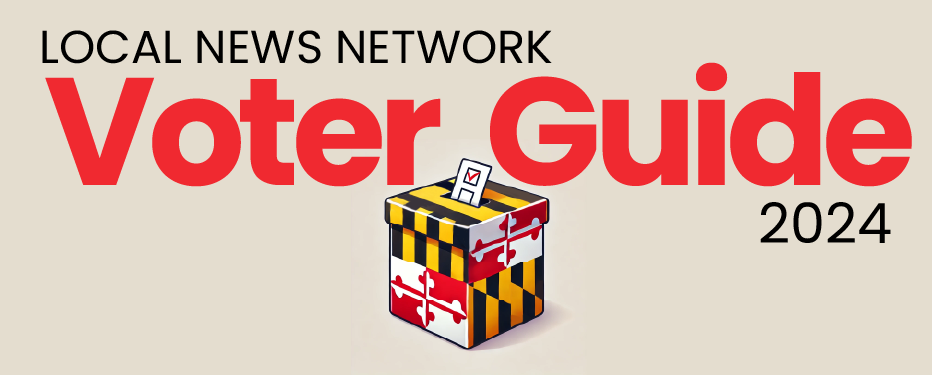LaToya Nkongolo
Running for school board in Anne Arundel County District 5
How old will you be on Election Day (Nov. 5)?
46
Are you currently employed? If so, where, and what is your job title?
I am the owner and operator of a mental health clinic located in Glen Burnie.
What is the highest level of education that you completed, and where did you get that degree?
I hold a master’s degree in organizational management and leadership from Springfield College, as well as a master’s degree in social work from the University of Maryland, Baltimore.
Why are you running for the school board?
I was encouraged to run by my county council representative, state delegates, several sitting Board of Education members and community members due to my long history of working with elected officials to address our community's needs. I have a strong reputation in the county as a bridge builder and gap filler. As a leader, I am proactive in decision-making, focusing on addressing issues before they escalate into crises. Unfortunately, my opponent lacks these skills, which has led to disorder on our board and in our community, ultimately affecting our progress. Our district deserves school board leadership that is proactive, level-headed, and attentive to the needs of all organizations and communities, working together to find common ground to meet everyone’s needs.
What makes you a good candidate for the board?
For nearly two decades, I have been deeply involved in Anne Arundel County, serving children and families from all backgrounds. In addition to my longstanding commitment to the county, I bring a wide range of skills and expertise that are currently lacking in our current board representative. Every program I’ve developed throughout the county has been successful and continues to serve as a vital resource for our community. As an entrepreneur with strong leadership and budgetary skills, combined with my data-driven decision-making, mental health expertise and focus on academic achievement, I am the most qualified and capable person to guide our schools toward success.
What is the most important issue facing your school board and what would you do about it if elected?
Our current board leadership has not prioritized academics, allowing schools to become overly focused on political and social issues. The recent Maryland Comprehensive Assessment results reveal that less than 55% of Anne Arundel County Public Schools students are proficient in reading, and fewer than 30% are proficient in math. Furthermore, science scores have declined statewide. Anne Arundel, once ranked among the top school districts in the state, is now mediocre at best. In a recent meeting, our superintendent noted that we lack the time and resources to act as both educational institutions and social service agencies. With a $2 billion budget, we’re not seeing a return on our investment. There are only 180 days in a school year, and we cannot afford to waste our students' time or our tax dollars. I am fully committed to improving academic outcomes for all students.
Please name a public leader you admire and explain why.
There are many people I could mention, but if I had to name someone who directly impacted my life, it would be Ronald Reagan. I was raised in low-income housing by a single teenage mother, and Reagan’s literacy initiative helped me break the cycle of poverty. He implemented a reading program called “Book It,” which incentivized reading, especially for students from low-income backgrounds. I believe that reading helped me thrive academically, ultimately leading to me becoming the first in my family to graduate from college, pursue a successful career, start a business and raise my family in a wonderful community. Education is only as strong as its support for our most vulnerable students, and I want stories like mine to be the expectation, not the exception.
The Blueprint for Maryland’s Future, passed by the General Assembly in 2021, is a 10-year plan that includes increased education funding to support early childhood education, increased teacher starting pay, college/career-readiness standards for high school graduates, and expanded services to multilingual and impoverished families, among other goals. Please tell us your views on the Blueprint and how it will affect your school district.
As a college-level educator, I fully support additional pay for teachers and expanding trade and career opportunities for high school students. My experience managing budgets as both a county employee and entrepreneur will be invaluable in addressing the needs of our staff and students. However, Anne Arundel County residents, especially taxpayers, should be concerned, as the state’s inability to fully fund the Blueprint shifts responsibility to local taxpayers. This could lead to increased taxes and reduced funding for other essential services. While Anne Arundel County is better positioned than some, critical initiatives, such as public-private partnerships for pre-kindergarten (for 4-year-olds), have not yet materialized. This leaves a potential burden on local capital and operational budgets, similar to the costly and lengthy transition of kindergarten to full-day, which took over a decade and millions of dollars. Therefore, additional funding needs and implementation challenges could further strain local resources.
Some school districts nationwide are placing new limits on the use of cellphones in middle and high schools. What do you think should be the policy on student use of cellphones in your district, and why do you support that policy?
Our superintendent recently implemented a balanced policy that restricts cellphone use during instructional time but allows students access to their phones during designated times during the school day. Cellphones can be significant distractions in the classroom, impacting students’ focus and overall learning. By limiting usage during class, we create a more focused learning environment that supports academic achievement. However, allowing students access to their phones during designated times can provide them with a sense of independence and a way to stay connected with their families. This approach strikes a balance between minimizing distractions in the classroom and respecting students' need for communication and autonomy.
Are you satisfied with your school district's efforts to ensure the safety of its students? What, if anything, should be done to improve school safety in your district?
Safety has declined in our school system, and I am not satisfied with my opponent's approach to student safety. Despite claims of prioritizing safety, her actions fall short in addressing the real issues our schools face. My opponent has not engaged meaningfully with parents, educators or law enforcement, opting instead for superficial solutions that fail to address the root causes of safety concerns. To improve safety in our district, we need regular safety audits, increased access to mental health resources and staff training on de-escalation techniques. Only with these proactive measures can we create an environment where students thrive academically and teachers can do their jobs effectively.
Do you think there are circumstances when books should be removed from school libraries? If so, what kind of books should be removed, and who should make those decisions?
I do not support book banning, as I believe students benefit from exposure to a wide range of age-appropriate ideas and perspectives. If concerns about specific books arise, I would approach these issues thoughtfully and with an open mind, ensuring that we have a balanced and respectful discussion. I believe in engaging parents, teachers and educational experts to review the content in question. I support parents' rights to have a say in what their children are exposed to and believe that schools should collaborate with parents to make informed decisions that prioritize our students' best interests.
Some school districts enact policies allowing transgender and gender nonconforming students to use their preferred pronouns while at the same time not informing those students' parents about that decision. What is your opinion of such policies?
My opponent believes that teachers should be the ones ultimately making decisions for the children, but I do not agree with this approach. Parents know their children better than anyone else, and research shows that parental involvement leads to better mental health outcomes. In my 25 years of experience as a mental health provider, I’ve found that nearly all parents genuinely want what’s best for their children. I believe that policies allowing transgender and gender nonconforming students to use their preferred pronouns should not compromise parental involvement. Parents bear the primary responsibility for their children's well-being and should be informed about significant decisions affecting their child's identity and mental health. I support fostering a respectful atmosphere for all students, but this must be balanced with open communication and collaboration with parents. As a mother and mental health therapist, I will support policies that promote parental involvement that will ultimately lead to better outcomes for students, as families play a vital role in their children's development and support. Ensuring that parents are part of the conversation is essential for a healthy and constructive educational environment for all.


